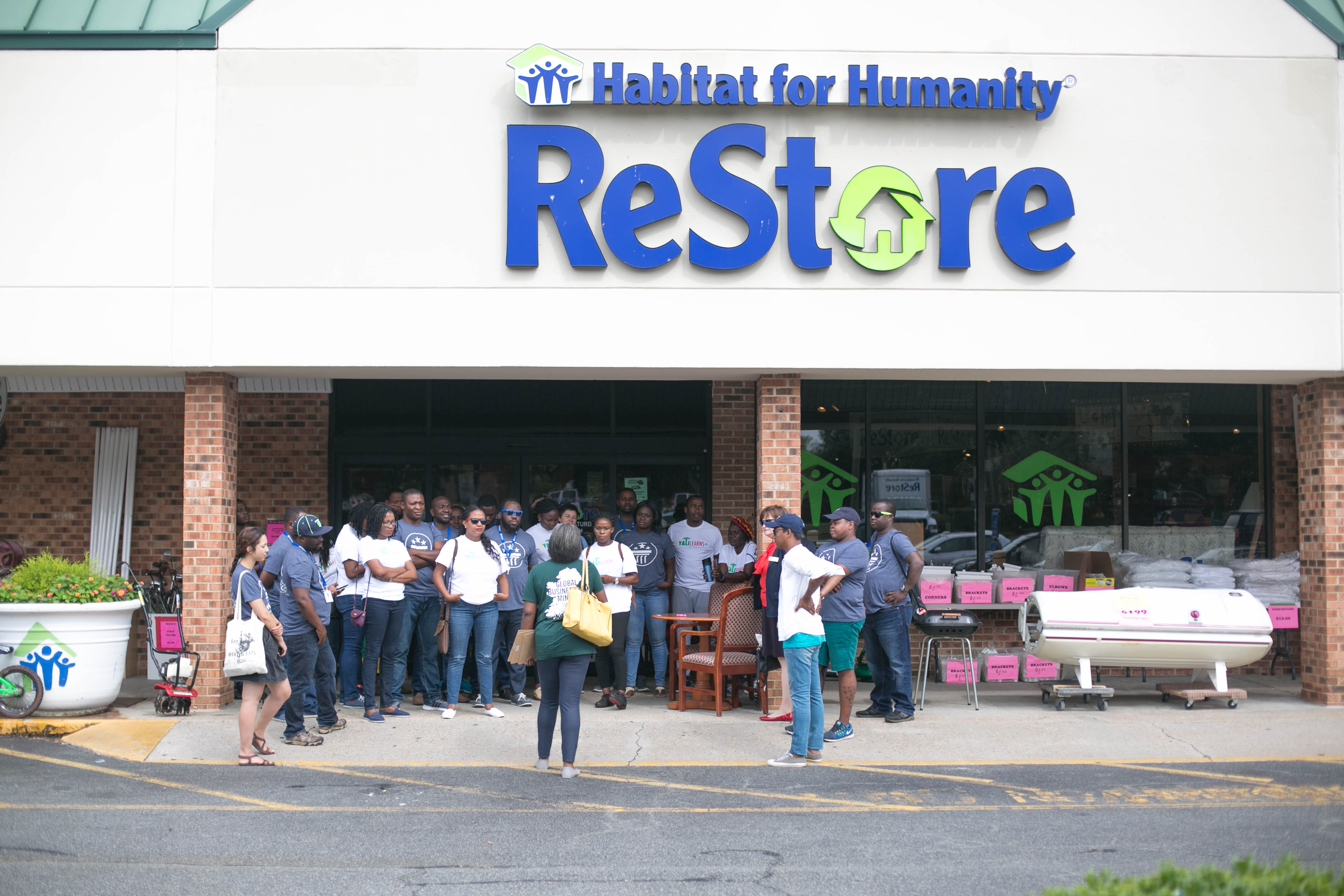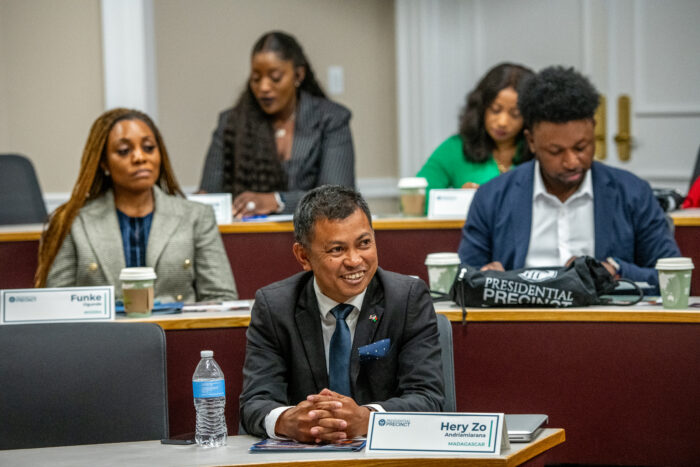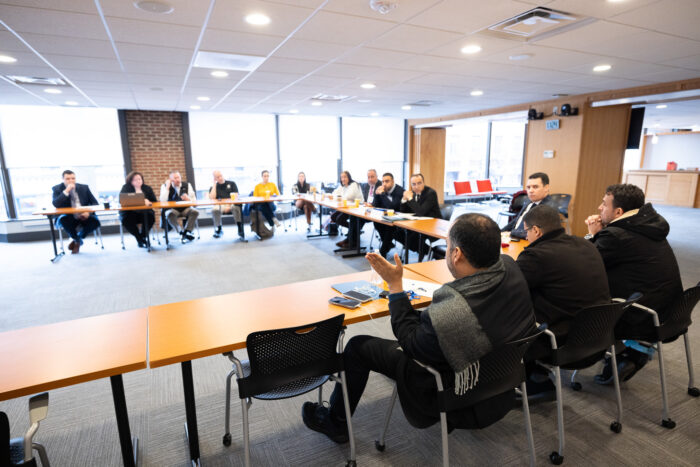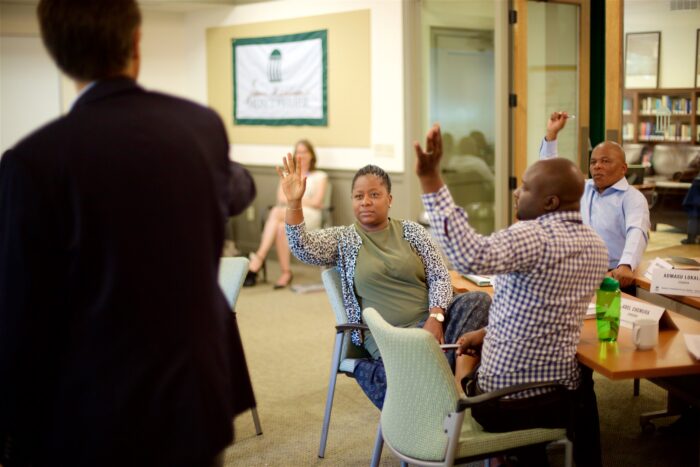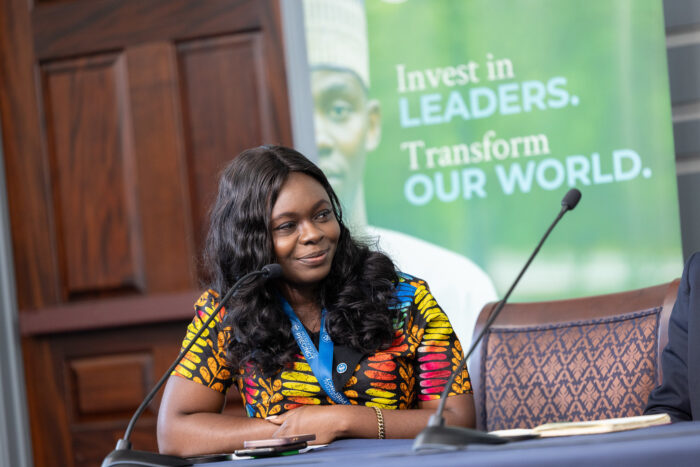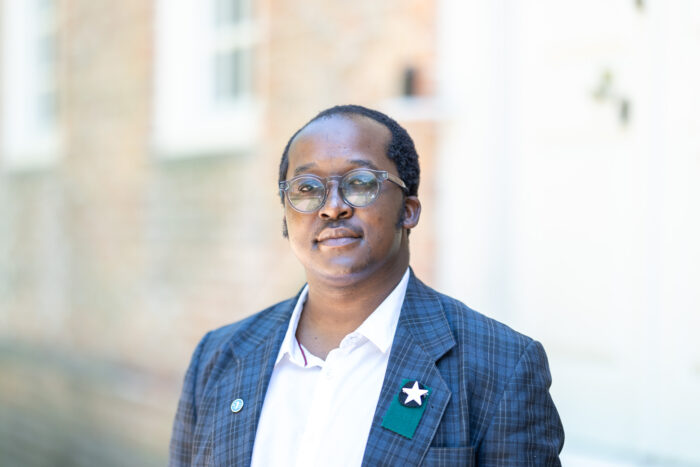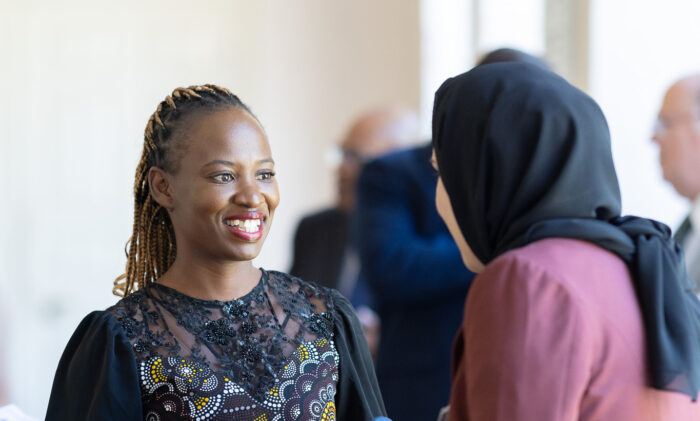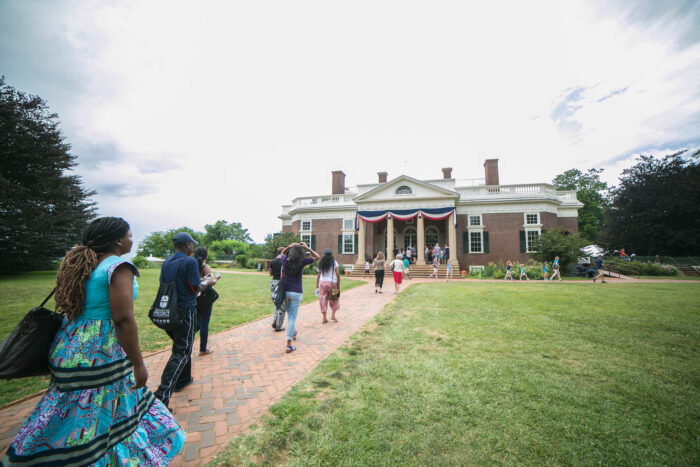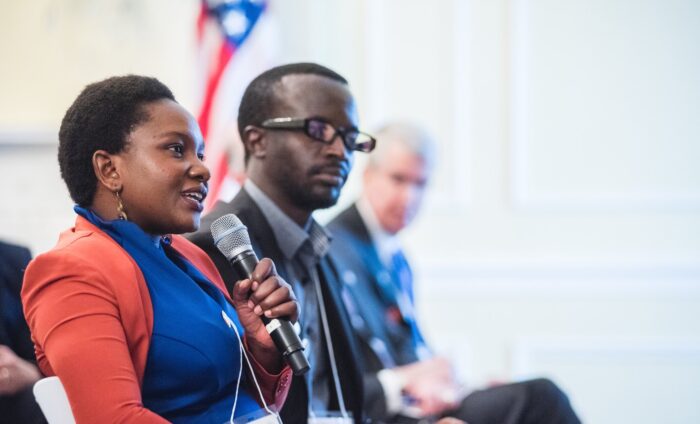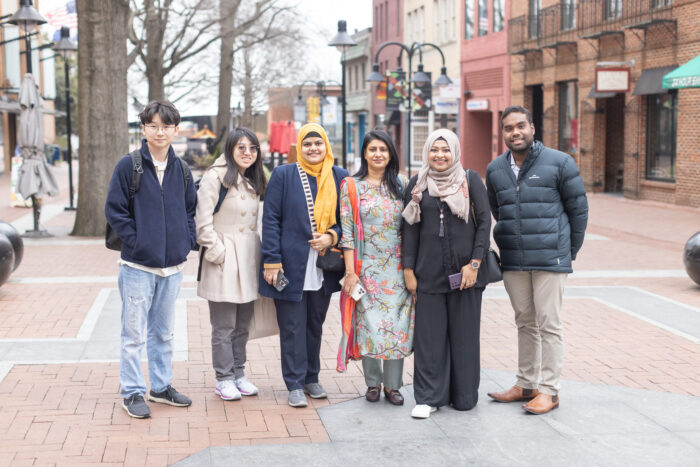Strong Men, or Strong Institutions: Leadership Thoughts from Mandela Day
By Dzikamai Bere, 2017 Mandela Washington Fellow, Zimbabwe
“My country is rich in minerals and gems that lie beneath its soil but I have always known that its greatest wealth is its people, finer and truer than the purest diamonds.”
These words by Nelson Mandela occupied my thoughts on this year’s Mandela Day which took place during our Civic Leadership Institute hosted by the Presidential Precinct as part of the Mandela Washington Fellowship for Young African Leaders. During this year’s Mandela Day, the Mandela Washington Fellows based at the College of William and Mary performed community service at Habitat for Humanity in Williamsburg, in unity with thousands of people around the world who gave their time to serve humanity. This was a very special time for us as young leaders to think about the role of leaders like Mandela in Africa today.
Mandela, the most colossal of African heroes, believed in the heroism of young leaders. In rebranding the then Washington Fellowship to Mandela Washington Fellowship, President Obama said,
“The spirit of this programme reflects Madiba’s optimism, his idealism, his belief in what he called ‘the endless heroism of youth.’”
A few years before, President Obama had made remarks in Ghana which reverberated across the continent and became a subject of reflection for many involved in governance work.
“Africa doesn’t need strongmen, it needs strong institutions,” he said.
This statement was repeated by Ben Rhodes (advisor the Obama administration) at the opening ceremony of the 2017 Mandela Washington Fellowship at the University of Virginia. This statement made so much sense when looked at in the context of powerful African leaders who mutate into government itself leading to what we call in Zimbabwe ‘personality cultism’. It is a common phenomena in both government and opposition parties.
The wisdom that strong governments rest on strong institutions reflects in modern democracy through the separation of powers, a system which allows for checks and balances.
In this regard, the words of James Madison are very instructive, “The truth is that all men having power ought to be mistrusted.”
Madison sheds more light on this tragedy, “The accumulation of all powers, legislative, executive, and judiciary, in the same hands, whether of one, a few, or many, and whether hereditary, self-appointed, or elective, may justly be pronounced as the very definition of tyranny.”
Does this really mean that Africa does not need strong men?
Franklyn Odhiambo (2016) disagrees;
“Without dismissing the merits of institutionalization, I think it naïve to dismiss the role of strong leadership in resolving Africa’s misfortunes.”
This is an interesting take on leadership for our generation that has so few models to celebrate in post-independence Africa.
Addressing participants at the Leading in Public Life Emerging African Leaders Programme in Cape Town in March 2017, renowned academic and thought leader Professor Mpempe said that leaders have a duty to open up the future. But such leaders must be historically conscious, and morally grounded. He said African leaders ought to understand the journey that the continent has undertaken and be conscious of the fact that the story of Africa is one of liberation. From the exchanges among African fellows and the tours of slavery plantation in the United States, it is evident that the struggle continues across the globe.
These thoughts challenge us to look differently on the concept of the strong man. It brings in the question of human agency in driving and sustaining change.
Having spent the past four weeks at the Presidential Precinct, at the houses of three of the five founding fathers of the United States, I have some appreciation of the role that strong men and women can play in moving societies forward. The story of the United States would be totally different without strong men like Thomas Jefferson, James Madison, George Washington, James Monroe, Abraham Lincoln, and Barack Obama. I have no doubt we need to include strong women like Rosa Parks in that story.
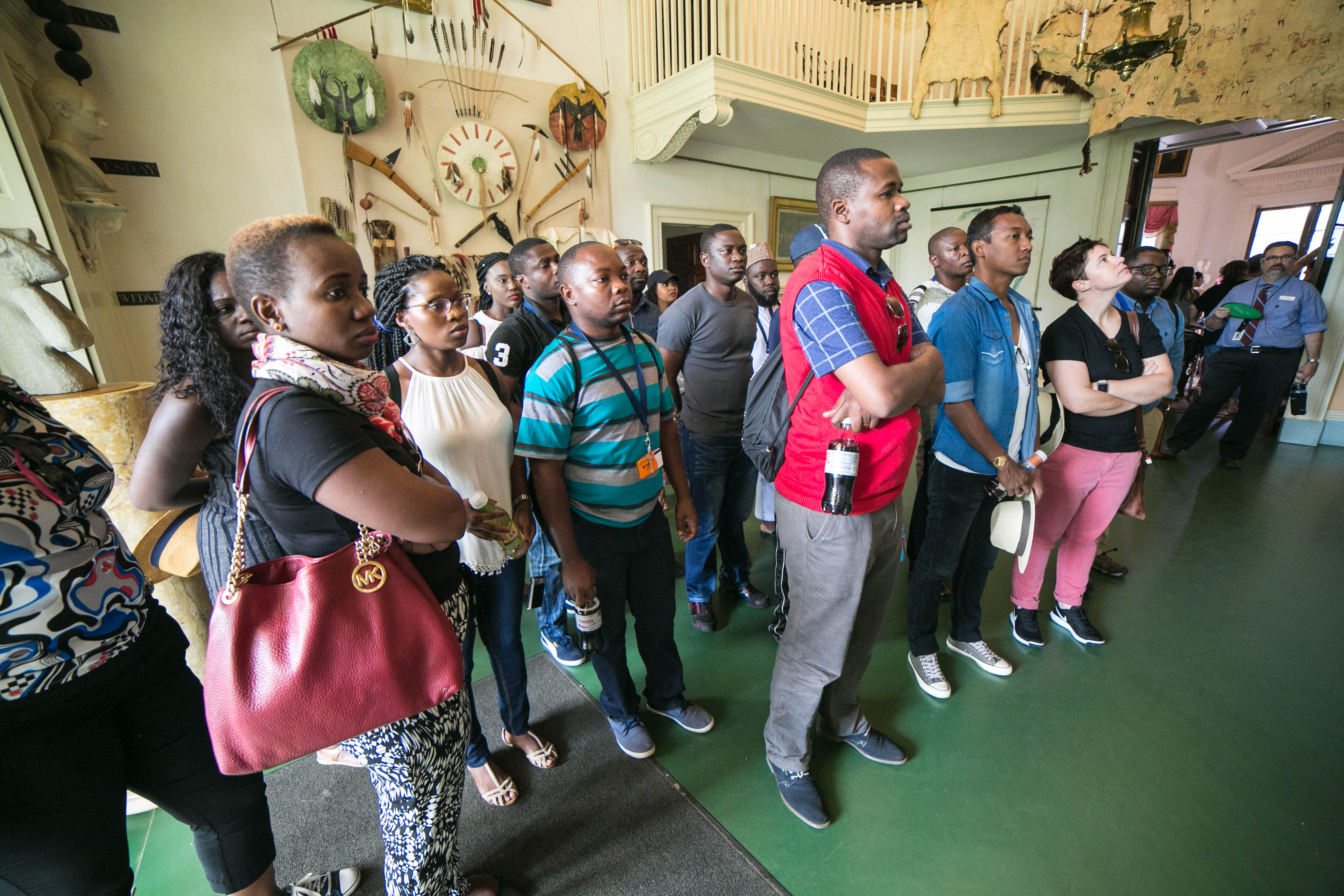
Indeed the story of South Africa would be different without colossal men and women like Nelson Mandela, Winnie Mandela, Steve Biko, Oliver Tambo. The story of Zimbabwe would be different without great names like Joshua Nkomo, Sally Mugabe, Hebert Chitepo, Josiah Tongogara, Jason Moyo, Wilfred Mhanda, Margaret Dongo, Lovemore Madhuku and Morgan Tsvangirai. The list is not exhaustive, and not without controversy, but it gives us an idea of how crucial leadership can be at every turn of human history.
What indeed is the real issue? What has become our problem with strong men that Africa must do away with them today? And how strong are the institutions without brave men and women who are ready to stand up to powerful executives and put a check in power?
I believe the real issue is the kind of strongmen our society chooses to bring to the fore. When Professor Mpempe talks of leadership with moral grounding, he is referring to, in my opinion, ethical leadership which is driven by the sense of common good. This is the same message that W. Taylor Reveley III, the President of the College of William and Mary, told the 2017 Mandela Washington Fellows in the informal conversation on leadership on Mandela Day. He said that if a leader cares nothing about the people, it would be better if he stayed in bed.
Once in a while, history has blessed us with such colossal ethical leaders who emerge at critical stages of African history to lead societies out of the doldrums of tyranny. But what if there was a deliberate programme to cultivate such leadership among us and create successive generations of strong leaders who are selfless and committed to service for the common good in every sphere of life? Wouldn’t that create even stronger institutions for better governance?
Africa needs strong institutions. But inside institutions, leaders make conscious decisions every day, whether to serve the people, or to serve themselves. Blessed is the day when the right choices become the order of the day.
As I reflect on Africa’s leadership challenges, I pay tribute to many institutions and individuals who work every day to build in young people the capacity, not simply for leadership, but for ethical leadership. President Sullivan of the University of Virginia told the 2017 Mandela Washington Fellows that true leaders never compromise on their integrity. Four weeks later, President Reveley addressed the same group and he had an equally powerful message;
“For Africa to realise its full potential, you (young leaders) have to step out and lead.”
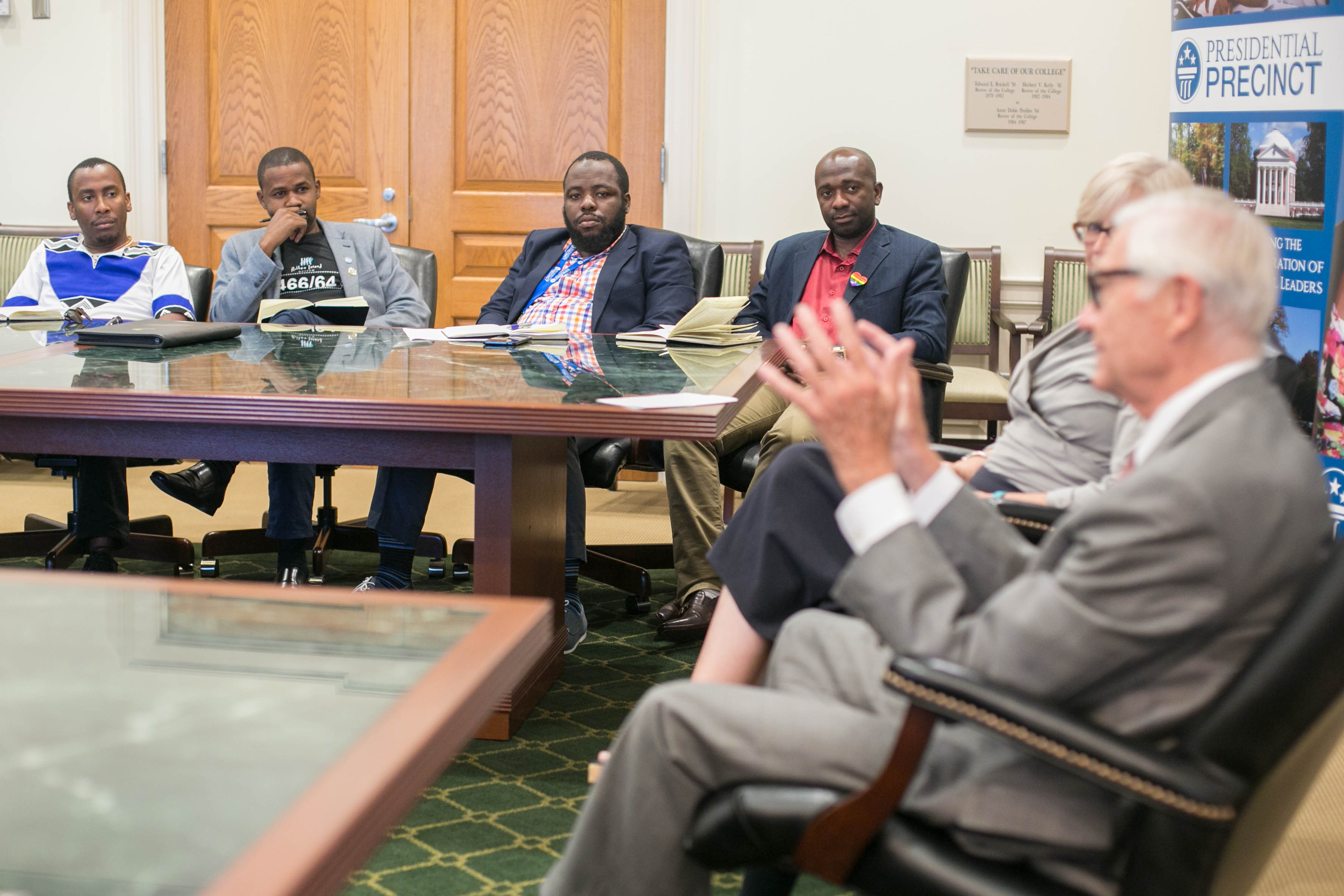
Out of all the riches across Africa, the precious diamonds in South Africa, Botswana and Democratic Republic of Congo, Platinum from Zimbabwe, Gold from Tanzania, Copper from Zambia, Bauxite from Guinea, Cocoa from Ghana, the most precious are young people who carry the promise of a new visionary transformative leadership that will build strong institutions, and (as Mandela said) ‘bring down the towers of oppression and raise the banners of freedom.’
Dzikamai is a Zimbabwean author and researcher currently taking part in the Mandela Washington Fellowship for Young African Leaders at the Presidential Precinct. In Zimbabwe he works for the Zimbabwe Human Rights NGO Forum, coordinating the activities of the National Transitional Justice Working Group (NTJWG). This article was originally published on his blog www.dzikamaibere.com

